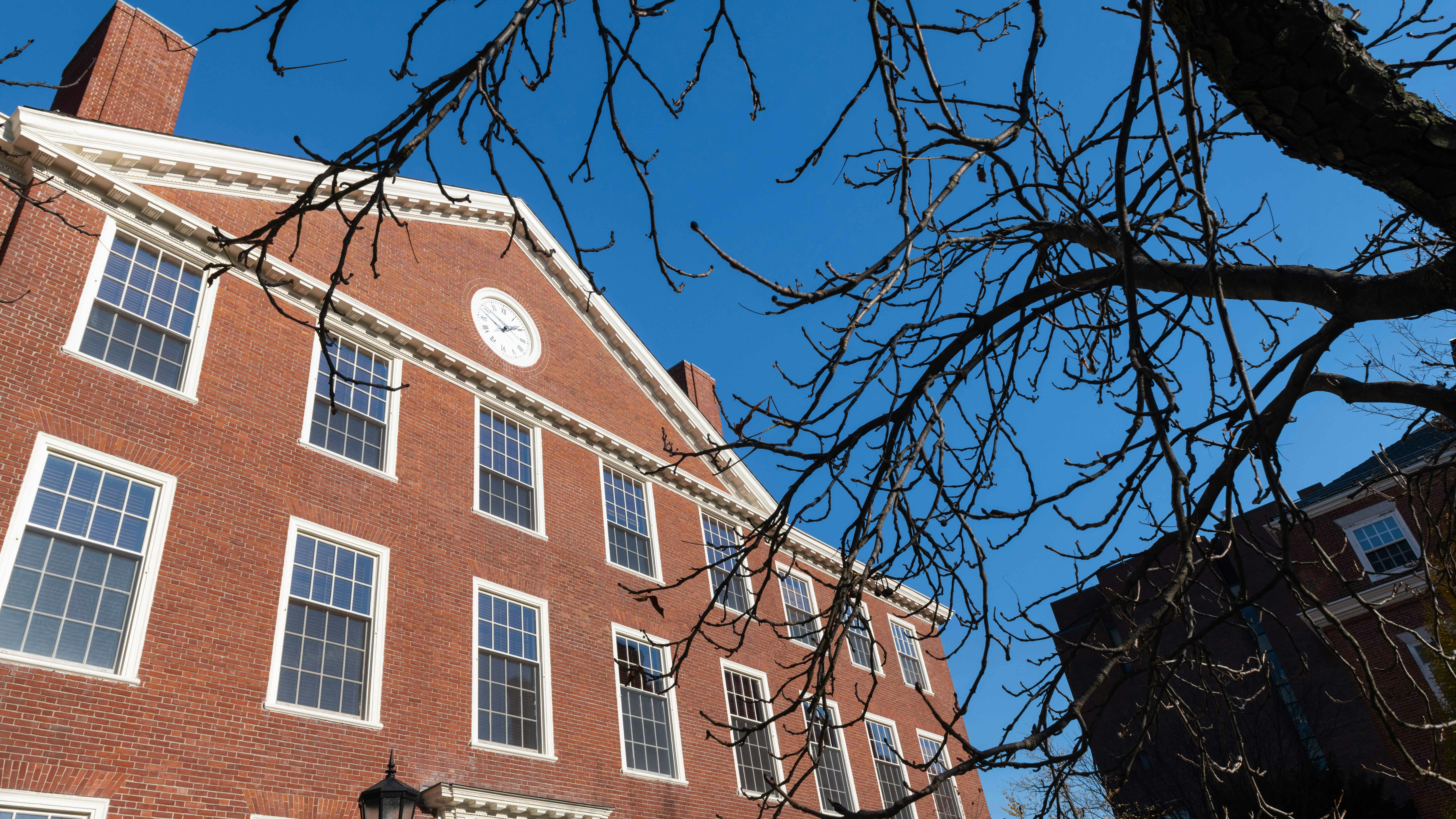Harvard Radcliffe Institute Announces 2023–2024 Fellowship Class

Worldwide cohort brings an array of projects, from exploring the far reaches of space to saving climate-endangered frogs
Contact: Mac Daniel
Associate Director of Communications
Harvard Radcliffe Institute
mac_daniel@radcliffe.harvard.edu
857-276-4949
CAMBRIDGE, Mass. (May 5, 2023)—Today, Harvard Radcliffe Institute announced its 2023–2024 fellows, a cohort whose projects contend with the urgent, the beautiful, and the vast: from reckoning with the challenges of climate change to creating digital models of iconic Italian violins to detecting distant galaxies.
A Radcliffe fellowship offers scholars in the humanities, sciences, social sciences, and arts—as well as writers, journalists, and other distinguished professionals—a rare chance to pursue ambitious projects for a full year in a vibrant interdisciplinary setting amid the resources of Harvard. The 2023–2024 fellows represent only 3.3 percent of the many applications that Radcliffe received.
These fellows will explore a large variety of topics across disciplines:
- Andrew Baker, William Bentinck-Smith Fellow, aims to detect the most distant galaxies ever seen using two radio-wavelength probes of interstellar gas and looking back nine billion years.
- Maggie Blackhawk, Matina S. Horner Distinguished Visiting Professor, will complete her book on the centrality of American colonialism, Native nations, and Native peoples to United States constitutional law and history.
- Harry Mairson, Rieman and Baketel Fellow for Music, will create a library of 3D digital models of iconic stringed instruments by Antonio Stradivari and other craftsmen. No similar open-access library exists, and its creation addresses restricted access to invaluable instruments.
- Ludwig Straub, Katherine Hampson Bessell Fellow, will construct the world’s first complete, internally consistent, and nationally representative disaggregated economic accounts. Such accounts hold the promise of assessing economic health at a much finer level and can help design more targeted policies than previously possible.
- Kim Vaz-Deville, Lillian Gollay Knafel Fellow, will work on a book about New Orleans’s African American Mardi Gras maskers.
“This year’s cohort promises, once again, to accomplish incredible things,” said Tomiko Brown-Nagin, dean of the Radcliffe Institute for Advanced Study, Daniel P.S. Paul Professor of Constitutional Law at Harvard Law School, and professor of history in the Faculty of Arts and Sciences. “As ever, we have outstanding fellows with expertise in a wide range of fields. Many are grappling with some of the most urgent challenges facing humanity, including seven exemplary scholars working at the forefront of research into climate change and issues of climate justice.”
“I am particularly excited to welcome our first two Radcliffe-Salata Climate Justice Fellows, Fushcia-Ann Hoover and Jennie C. Stephens, who will be part of a University-wide community anchored at the new Salata Institute for Climate and Sustainability,” says Brown-Nagin. Hoover will explore green urban planning informed by questions of race and justice. Stephens will write a book on how to reimagine the role of universities to unlock their potential to reduce climate injustice and accelerate global fossil fuel phaseout.
Other fellows working on issues related to climate include:
- Sathyabhama Das Biju (S. D. Biju), Hrdy Fellow, is popularly known as “the frogman of India.” Increasing numbers of amphibians—species which scientists consider “environmental barometers”—face the threat of extinction, some vanishing from Earth before they are known to science. Biju has discovered more than 100 amphibian species and his work at Radcliffe aims to accelerate these scientific efforts through on-site collaboration with Harvard faculty members, postdocs, and graduate students, and through use of the rich specimen collections of the Museum of Comparative Zoology.
- Narges Mahyar will integrate situated visualization (SV), augmented reality, and public participation technology to raise awareness about climate change for underserved communities in Boston.
- Eduardo Mercado III, Grass Fellow, will explore an emergent threat to whales and dolphins as warming oceans affect their food sources and increased noise pollution disrupts how these marine mammals—who rely on sound for survival—are able to navigate, communicate and find food.
- Leah Stokes, Jeffrey S. and Margaret Mais Padnos Fellow, will write a book on federal climate policy.
- Rob Verchick, Frances B. Cashin Fellow, will spend his fellowship year writing a book about how to harness the power of government, science, and local wisdom to rescue the oceans from climate breakdown.
“I look forward to welcoming the new class of fellows,” said Claudia Rizzini, executive director of the Fellowship Program. “I look forward to fostering a community that transcends individual disciplines and is fueled by collective intellectual energy and creativity.”
A full list of incoming 2023–2024 Radcliffe fellows can be found here.
About Harvard Radcliffe Institute
The Radcliffe Institute for Advanced Study at Harvard University—also known as Harvard Radcliffe Institute—is one of the world’s leading centers for interdisciplinary exploration. We bring students, scholars, artists, and practitioners together to pursue curiosity-driven research, expand human understanding, and grapple with questions that demand insight from across disciplines. For more information, visit www.radcliffe.harvard.edu.







